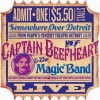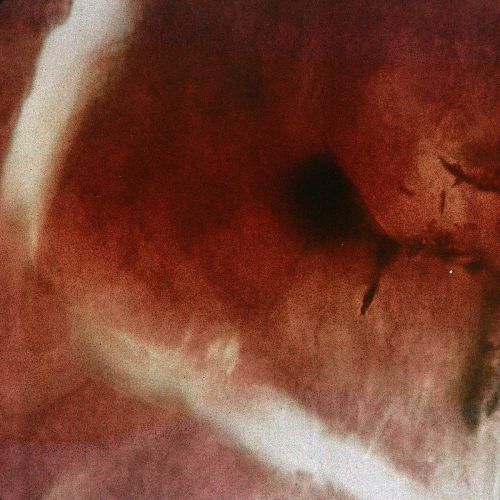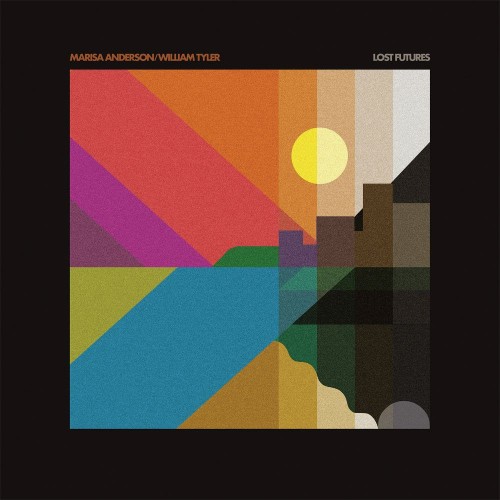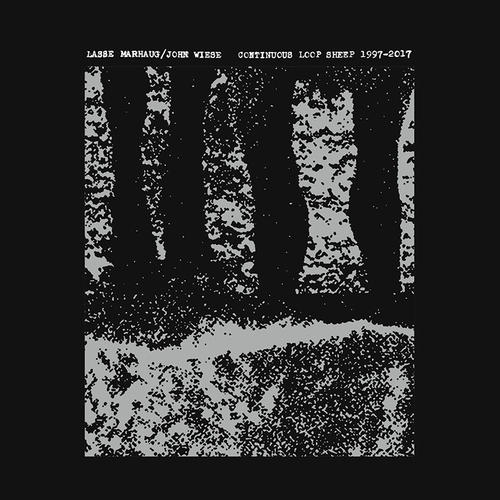 F Scott Fitzgerald famously once declared that American lives had no second act. Thankfully, Don van Vliet, throughout his career an exception in so many ways, was one exempted from this rule. For, following the musical big bang of 1976, Beefheart – truculent, dissonant, and decidedly not a member of the flaccid hippie ranks against which Punk rock had raged – gradually began to assume something of the role of elder statesman. Openly cited as an influence by John Lydon (née Rotten), the refreshed palate of the Punk and Post-Punk eras, more open to the abrasive, the obtuse and the unconventional, saw the Captain as someone who had represented Punk avant la lettre, and whose influence could been seen and heard shot through the angular guitars and stuttering non-linear rhythms that were ascendant during the late 1970s and early 1980s.
F Scott Fitzgerald famously once declared that American lives had no second act. Thankfully, Don van Vliet, throughout his career an exception in so many ways, was one exempted from this rule. For, following the musical big bang of 1976, Beefheart – truculent, dissonant, and decidedly not a member of the flaccid hippie ranks against which Punk rock had raged – gradually began to assume something of the role of elder statesman. Openly cited as an influence by John Lydon (née Rotten), the refreshed palate of the Punk and Post-Punk eras, more open to the abrasive, the obtuse and the unconventional, saw the Captain as someone who had represented Punk avant la lettre, and whose influence could been seen and heard shot through the angular guitars and stuttering non-linear rhythms that were ascendant during the late 1970s and early 1980s.
Beefheart himself was astute enough to notice this change, and the changes in himself, observing of the famous Mojave Desert photograph of himself taken by Anton Corbijn in 1980 that “I saw the person in that photo and grew into him.” Corbijn himself also saw something different in it: “He was only 39 when I took that picture [in 1980]. But by taking his hat off, he became less of an act. He seems very vulnerable. There is a beautiful human being there, but it is different than the artist.”
With his elevation to this new position in the firmament, no longer a quirk or a joke, but a pioneer and an innovator, Beefheart could at last slough-off completely his difficult years during the mid to late 1970s. Both the ill-advised foray into the world of commercial acceptability represented by Bluejeans and Moonbeams (1975) and the debacle of Bat Chain Puller (1976) were set aside; and by 1980 Beefheart was recording with a lean, mean, new version of The Magic Band and touring to wildly appreciative audiences.
Now I know that Trout Mask Replica is considered the ne plus ultra Beefheart masterpiece; that the real cognoscenti say that they prefer Lick My Decals Off, Baby; and that Clear Spot contains popular favourite “Big Eyed Beans from Venus”; but I have to say – whisper it – that Doc at The Radar Station has always been my favourite Beefheart album. After eight months locked in the house at Woodland Hills eating only cups of beans, the ’69 vintage Magic Band could supposedly blast through “Ella Guru,” “Dachau Blues” et al in single takes in a mere four hours; but when performing “Best Batch Yet” during his 1980 tour, the Captain would often pause and gesture towards the motley assortment of gimlet-eyed weirdos that comprised the ’80 iteration of the band, and whilst nodding approvingly he would speak-sing to the audience that “this could be the best batch yet.” And who am I to disagree with the Captain?Much as I love the cast of colourful characters comprising such unforgettable be-kaftaned oddballs as the aforementioned Rollo, Antenna Jimmy, The Mascara Snake and (best of the bunch in terms of monikers) Winged Eel Fingerling, The Magic Band of 1980 really had something: a muscularity and a tight Post-Punk groove that seemed both of its time and somehow utterly transcendent of it. Having helped inspire Punk, The Magic Band were both revitalised and improved by it. Jeff Morris Tepper, Bruce Lambourne Fowler, Robert Arthur Williams and the rest – with old lag John French still playing Marshall Allen to Beefheart’s Sun Ra – were an awesome unit who could thrash guitars with the best of them, yet still retain that unmistakable Beefheart imprimatur.
So, whilst it’s unlikely that anyone will be mistaking the live set captured here as the best recorded live album of all time, it can be said with utter certainty that it rocks. It absolutely rocks. Ripping through the material like their instruments could be impounded at any moment, The Captain and his merry cohorts treated the crowd at Harpo’s to a career-showcasing chrestomathy that stretched back all the way to the Safe as Milk album from 1967. Maybe it does sound like it’s been recorded through a sock, but “Hot Head” is utterly blistering, guitars raging, drums pounding, with Beefheart’s trademark guttural growl reaching around your throat and giving a not entirely playful squeeze. “Safe as Milk,” instead of sounding like a charming psychedelic Sixties preamble to later Magic Band magnificence, is here a ferocious tapestry of guitar interplay, every bit as vital as the post-Trout Mask songs. “Kandy Korn,” played at what seems like double its normal speed, sounds utterly bravura, crunching whilst losing none of its ascendant subtlety, howling yet delicate at the same time. And the insanely ferocious “Big Eyed Beans from Venus” that closes the album is a joy to hear; the raucous applause and adulation that greets the end of the set show that the audience felt the same way at the time.Yet it’s not all a full-throttle assault. The miniature guitar jewels which would regularly adorn Beefheart’s albums are also here in the form of delightful and intricate versions of “A Carrot is As Close As a Rabbit Gets to a Diamond” and “One Red Rose That I Mean.” Peppered in between are classic Beefheart cuts such as “My Human Gets Me Blues,” “Abba Zabba,” “Sugar and Spikes” and, as it should have sounded, a five minute version of “Bat Chain Puller” (Puller, Puller).
Only two years after this show, however, Beefheart would leave music forever, acknowledging the unavoidable truth that the painter who was Don van Vliet would never be taken seriously whilst he also continued to be the musician who was Captain Beefheart. In an act of admirable existential authenticity, van Vliet made his choice; given the sheer cliff-edge of standards over which many of the best musicians of his era tumbled headlong throughout the 1980s (terrible electronic drums, airless studio production, misguided attempts to smear Fairlights and synthesizers over everything), that decision seems more appropriate and more courageous with every passing year. In retrospect it has to be a very good thing indeed that there are no late Eighties monstrosities to blight his oeuvre and sully his reputation.Ice Cream for Crow was the end of Captain Beefheart; and with the death of Don van Vliet in 2010, The Captain’s spirit will forever more remain only a whisper on the desert winds of the Mojave. This being the case, let’s be thankful that unearthed gems such as this offer us a time machine with which we can slip back across frictionless decades and glimpse, if only briefly, the utterly unique talent that was Captain Beefheart.
Mr Jeff Morris Tepper, hit that long lunar note and make it float…
-David Solomons-




3 thoughts on “Captain Beefheart and The Magic Band – Live From Harpo’s 1980”
John Lydon was not born with the name “Rotten,” he was born with the name “Lydon.” When you say “John Lydon (née Rotten),” you are saying that he was born “John Rotten” but became more well known as John Lydon. You should have just said “(AKA Rotten),” or something along those lines that actually says what you meant. Don’t use fancy French words when you don’t actually know what they mean.
The answer to your captious objection lies in your own point:
‘When you say “John Lydon (née Rotten),” you are saying that he was born “John Rotten” but became more well known as John Lydon.’
David was being sardonic – the character played by the lead singer of The Sex Pistols was “born” as Johnny Rotten, but later became better known under his real name, John Lydon… a bit like the character Captain Beefheart was “born” (or “baptised” by Frank Zappa) that, but was “reborn” as Don van Vliet.
And several of us actually speak French, fancy or otherwise, on a daily basis.
@JC. Thank you for your feedback, although I can’t help thinking that you’ve used a rather aggressive sledgehammer to crack a small and walnut-sized joke. There is nothing wrong with my command of French: in this case it relates to the verb naître, used in le participe passé (the past participle) and taking the auxiliary verb étre rather than avoir. Here, what I wrote was deliberate and was intended as what’s called wordplay, a humorous inversion of the common ‘stage name (born original name)’ trope to comment on Lydon’s evolution FROM Johnny Rotten TO John Lydon. If you’ve not heard it, perhaps give a listen to ‘Public Image’ by Public Image Limited, in which the great man himself explains it better than a humble scribe such as I ever could. In my opinion, reviewing (even of so sacred a cow as Beefheart), doesn’t have to be a po-faced business, and so my reviews do tend to contain a lot of neologisms, wordplay and streams of consciousness. I would suggest that if you find my style irksome – and that is completely your prerogative – you avoid them and read those of some of the other reviewers instead. I would suggest those of Kev Nickells, since as his are often really great.